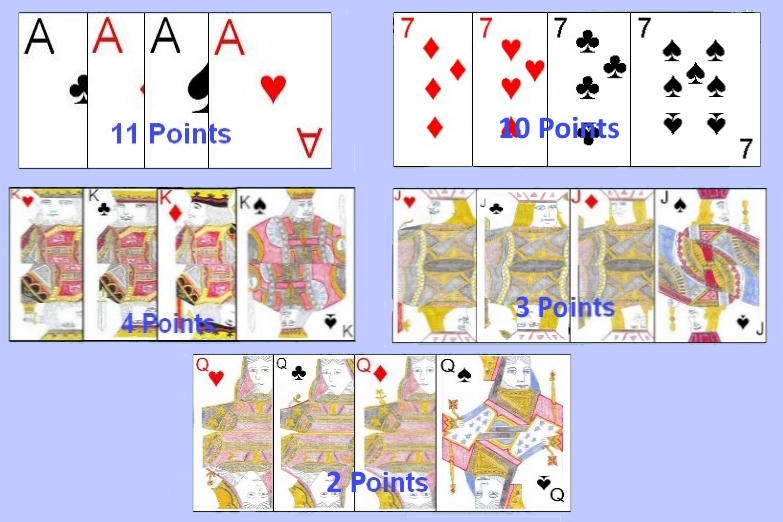
| Card | Card Point Value |
|---|---|
| Ace | 11 Each |
| Ten | 10 Each |
| King | 4 Each |
| Queen | 3 Each |
| Jack | 2 Each |
| 9, 8, 7 | 0 |
How to Play Zole |
 Zole is a Latvian trick taking game which appears to be a derivative of the German game Schafskopf
(Sheepshead). This game is also often played under the name Zolite
and in older card game books is referred to as Revelite. The game is so popular in it's country of origin that not only is
it considered the National game of Latvia but it is even included in the National List of Intangible Cultural Heritage as a key aspect of the country.
Zole is a Latvian trick taking game which appears to be a derivative of the German game Schafskopf
(Sheepshead). This game is also often played under the name Zolite
and in older card game books is referred to as Revelite. The game is so popular in it's country of origin that not only is
it considered the National game of Latvia but it is even included in the National List of Intangible Cultural Heritage as a key aspect of the country.

|
|